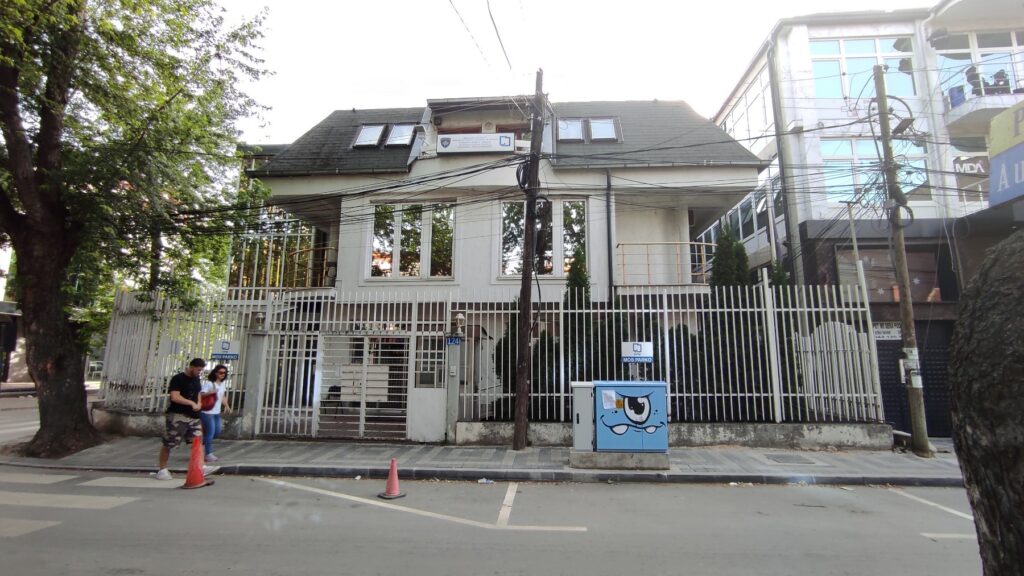
Kosovo’s Independent Media Commission building. Photo: BIRN
Kosovo’s parliament on Thursday adopted a controversial law on the Independent Media Commission, IMC, ignoring international calls for stricter safeguards.
Under the terms of the new law, among others, online media will be subject to state licensing and control by the IMC. Online media outlets will be forced to register in the Online Media Register, which will be managed by the IMC. They will also now be subject to a regime of sanctions, including potential fines of up to €40,000.
Fifty-nine MPs from ruling coalition voted in favour of the law and two abstained while all opposition MPs vacated the chamber before the law was put up for vote in an attempt to challenge the quorum. After the vote, the opposition Democratic Party of Kosovo PDK announced it will take the law to the Constitutional Court for review.
After the vote, the OSCE Mission in Kosovo, which has supported the IMC since its establishment in 2005, said that some attempts had been made to revise certain articles to achieve legal clarity and introduce procedural safeguards, but the law still lacks effective self-regulation mechanisms.
“The extension of the IMC’s jurisdiction to social media, coupled with the absence of clear criteria for blocking harmful content, raises concerns about proportionality and has potential implications for freedom of expression,” the OSCE said.
It urged that the law be the “subject of a comprehensive review, during which the views of both Kosovo and international experts should be sought”.
Under current legislation, the IMC is an independent institution responsible for the regulation, management and oversight of the broadcasting frequency spectrum in Kosovo.
The Association of Journalists of Kosovo, AJK, also criticized the new law, calling it as “a blow to media freedom and an attempt to discipline and control them”.
“The ruling [Vetevendosje] party has not taken into consideration civil society’s and media remarks and has disregarded the CoE expert who has concluded that most of the law does not meet European standards,” AJK said.
On June 26, the European Union Office in Kosovo warned that the draft law does not reflect the majority of the recommendations included in a legal opinion prepared by the Council of Europe.
These included sensitive issues such as the powers and financing of the Independent Media Commission, the election procedures and terms of service for its members, and the proportionality of sanctions.
“Despite the introduction of some substantial changes in the field of media regulation, the current draft requires further revisions to enhance legal clarity, proportionality, and further compliance with EU and Council of Europe standards,” the EU Office said.
In this year’s Reporters Without Border’s index, Kosovo dropped 19 places from last year to 75th place, reflecting attacks on journalists from political groups and even physical attacks in the field.

 Zagreb’s Clinical Hospital Centre was targeted by Russian hackers. Photo: kbc-zagreb.hr
Zagreb’s Clinical Hospital Centre was targeted by Russian hackers. Photo: kbc-zagreb.hr
 Photo illustration: EPA/RITCHIE B. TONGO
Photo illustration: EPA/RITCHIE B. TONGO









 Opposition Democratic Party MP Jorida Tabaku at a parliamentary session. Photo: LSA
Opposition Democratic Party MP Jorida Tabaku at a parliamentary session. Photo: LSA 









